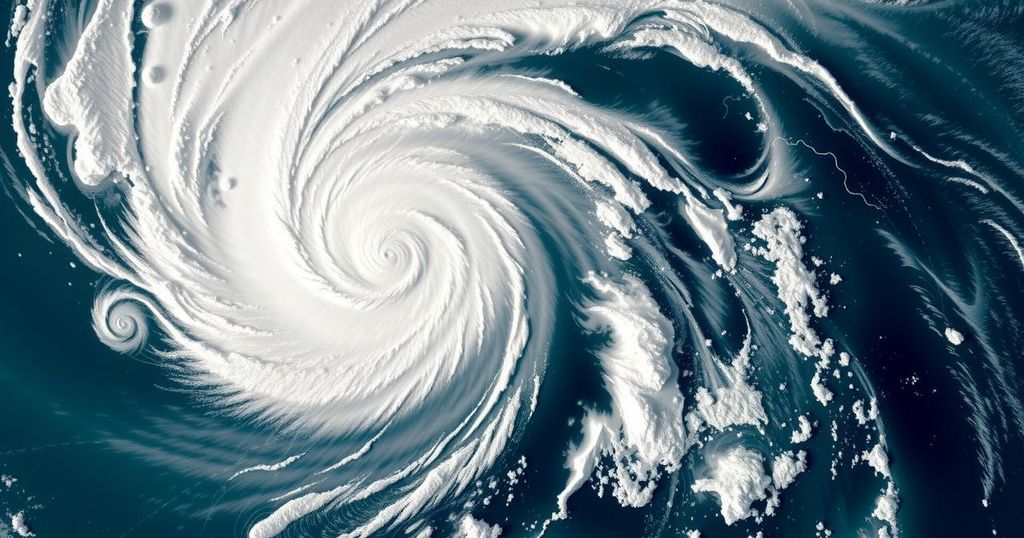Cyclone Chido Devastates Mayotte, Threatens Eastern Africa With Severe Impact

Cyclone Chido has caused widespread destruction in Mayotte, with winds over 220 km/h. The cyclone is heading towards eastern Africa, affecting Comoros and Mozambique, where millions might be impacted. Previous cyclones underscore the increased dangers in the region, exacerbated by climate change. Mayotte remains on red alert, while local authorities and rescuers mobilize efforts amid extensive damage.
Tropical Cyclone Chido has wreaked havoc on Mayotte, a French territory in the Indian Ocean, as it advances towards eastern Africa. With winds exceeding 220 kilometers per hour, the cyclone caused significant destruction, including damage to numerous homes and infrastructure. Francois-Xavier Bieuville, the Prefect of Mayotte, highlighted the severity of the situation, declaring it “the most violent and destructive cyclone since 1934.” Despite the devastation, there were no immediate reports of casualties, prompting authorities to lift the highest alert to facilitate rescue operations after the cyclone passed. However, Mayotte remains on red alert, urging residents to stay sheltered and allow only emergency services to operate.
The storm has also impacted the nearby nation of Comoros, leading to heightened concerns for 11 fishermen who have not returned from sea. Comorian authorities have restricted maritime activities and closed airports and schools in preparation for the severe weather. As Chido progresses, it is expected to make landfall in Mozambique, where the local disaster agency has estimated that approximately 2.5 million people could be affected across multiple provinces. Malawi and Zimbabwe are also bracing for the storm’s effects, with advisories for potential evacuations and flood preparations in place.
The cyclonic season from December to March poses increased risks, with prior cyclones, such as Idai and Freddy, resulting in significant fatalities in the region. These natural disasters are exacerbated by climate change, creating humanitarian crises in poor nations that contribute minimally to global climate issues. The ongoing situation demands urgent international attention and aid, especially considering the potential outbreaks of diseases such as cholera in the aftermath of flooding.
Tropical cyclones are intense circular storm systems that originate over warm tropical oceans and are characterized by low atmospheric pressure and strong winds. Cyclone Chido exemplifies the dangers posed by such storms, particularly for island nations and coastal regions in Africa that lack robust infrastructure to withstand multiple disasters. Historically, countries like Mozambique, Malawi, and Zimbabwe have faced devastating effects from cyclones during the seasonal peak from December through March, which has been exacerbated in recent years due to the impacts of climate change. As a result, these countries often face large-scale humanitarian crises, despite being among the lowest contributors to global greenhouse gas emissions.
In summary, Cyclone Chido has devastated Mayotte and is on a trajectory towards eastern Africa, prompting overwhelming damage and raising concerns for many lives. Despite immediate success in rescue efforts, ongoing vigilance is necessary as the cyclone continues to affect neighboring nations. The increased frequency and intensity of such cyclones underscore the urgent need for climate action and international humanitarian support in vulnerable regions.
Original Source: www.voanews.com






